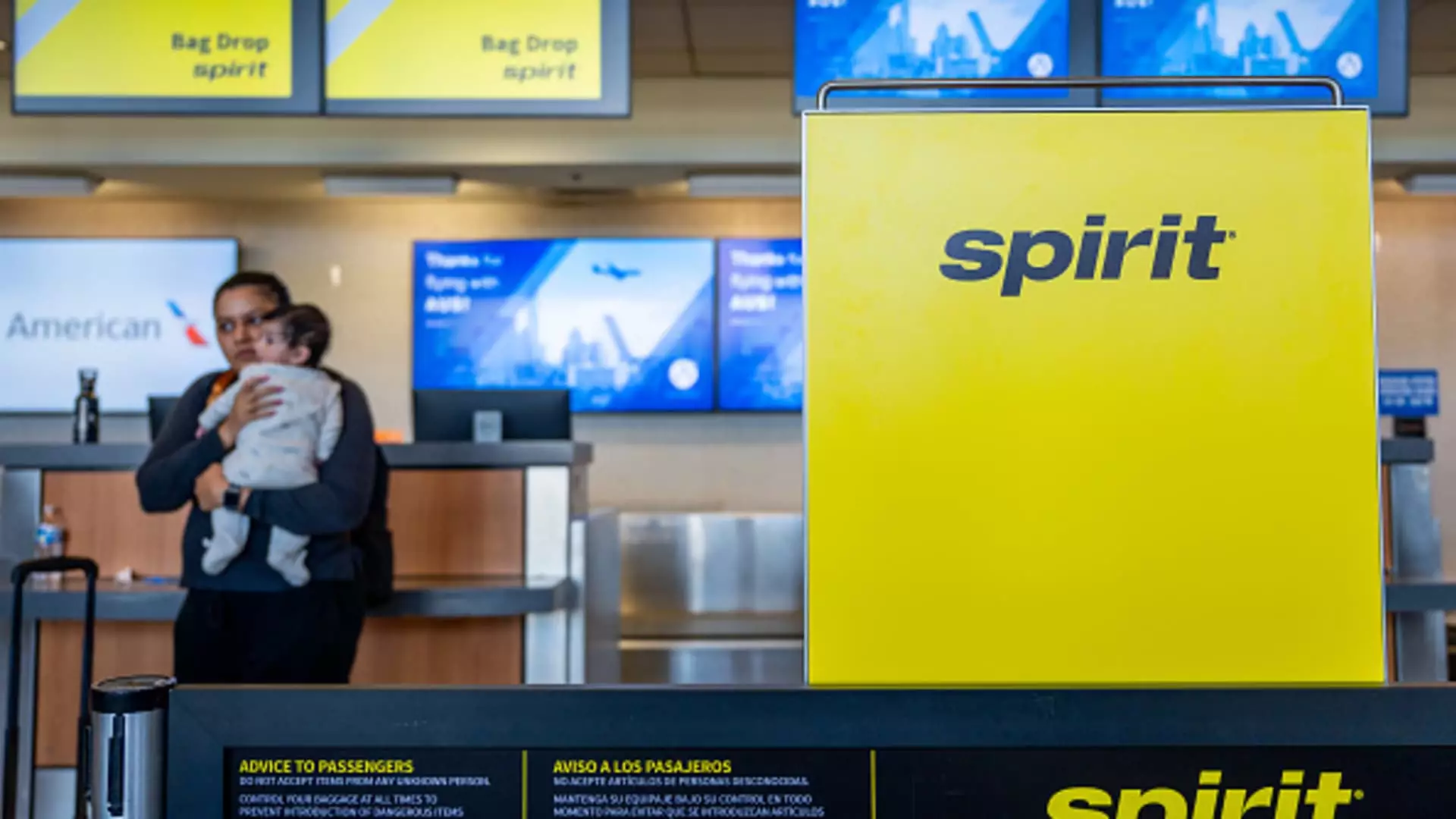In a significant development for the air travel industry, Spirit Airlines has initiated a Chapter 11 bankruptcy protection process, marking it as the first major U.S. passenger carrier to take such a step in over a decade since American Airlines did so in 2011. This strategic move by Spirit is not indicative of an impending shutdown; instead, it serves as a mechanism for restructuring the airline’s operations and addressing its fiscal challenges. As the CEO, Ted Christie, assures travelers in a public communication, customers can continue to make flight bookings, utilize their loyalty points, and redeem credits as usual throughout this transitional phase.
Despite its budget-friendly reputation, Spirit Airlines has grappled with financial deficits since 2019, a trend that intensified with the onset of the COVID-19 pandemic. The airline experienced a perfect storm of adverse financial conditions: rising operational costs, a significant grounding of its Airbus fleet linked to an engine recall, and a detrimental blow dealt by a judicial block on its proposed merger with JetBlue Airways. Additionally, Spirit has found it increasingly difficult to renegotiate its substantial $1.1 billion debt obligations scheduled for next year. A looming deadline tied to its credit card processing agreements further compounded its financial predicament.
In a bid to navigate this turmoil, Spirit announced on Monday that it has established a prearranged agreement with a majority of its bondholders to facilitate a more streamlined Chapter 11 process. The airline anticipates emerging from this protective status by the end of the first quarter in 2025, signaling hope for a return to stability.
While entering bankruptcy is a serious step, it does not inherently spell disaster for flight operations. Chapter 11 allows Spirit Airlines the legal backing needed to reorganize its business model, which could involve divesting certain assets or operational components. Analysts, like Henry Harteveldt of Atmosphere Research Group, emphasize that consumers should remain vigilant about potential changes to flight schedules or workforce adjustments, as these factors could directly influence their travel experience.
Travelers might be particularly affected if Spirit decides to reduce flights or adjust their staff, but it is expected that the airline will strive to maintain its operational schedule, particularly during the lucrative holiday season—a period crucial for revenue generation.
Under U.S. regulations, airline passengers hold specific rights when facing canceled flights due to an airline’s operational changes. In such instances, consumers are entitled to receive monetary refunds if the airline cannot rebook them. However, the Department of Transportation (DOT) cautions that securing refunds may be more complex during bankruptcy proceedings. The agency stipulates that a filing for bankruptcy might temporarily impede the airline’s ability to issue refunds to conserve its financial resources.
For customers left stranded by Spirit’s potential flight cancellations or alterations, credit cards offer additional layers of protection under the Fair Credit Billing Act. Without immediate refunds, purchasing last-minute tickets to accommodate altered travel plans can prove financially burdensome, given the likelihood of increased fares during peak travel seasons. Experts recommend that customers consistently opt for credit card payments rather than cash or debit for travel-related purchases.
As Spirit implements its restructuring under Chapter 11, the airline is positioned as a smaller, more agile unit that can navigate the increasingly competitive air travel landscape. This scenario might open windows for other airlines in search of added assets, particularly as industry competition intensifies. There remains speculation that alternative merger discussions, such as a renewed partnership with Frontier, could emerge, given the dynamic nature of the current airline market landscape.
While the news of Spirit Airlines’ bankruptcy filing raises valid concerns for customers, it’s essential to remember that the airline is not shutting its doors. With CEO Ted Christie’s reassurances and the groundwork laid for reorganization and recovery, Spirit may well navigate through these tumultuous times back toward operational sustainability. Travelers should remain informed and proactive about their booking choices and remain vigilant about changes that could impact their travel plans moving forward.


Leave a Reply